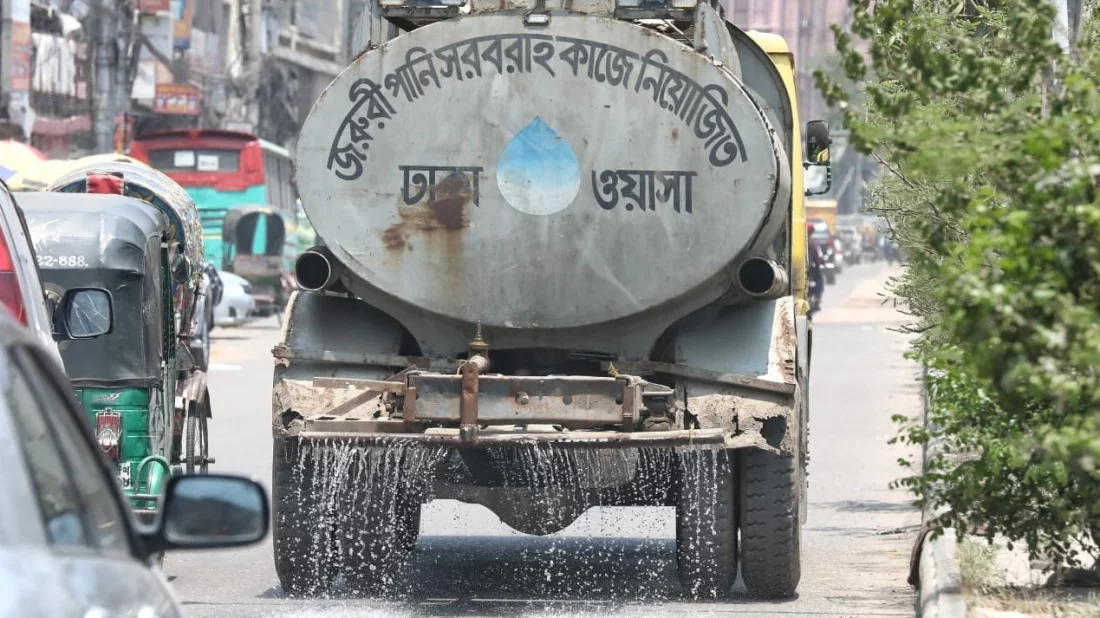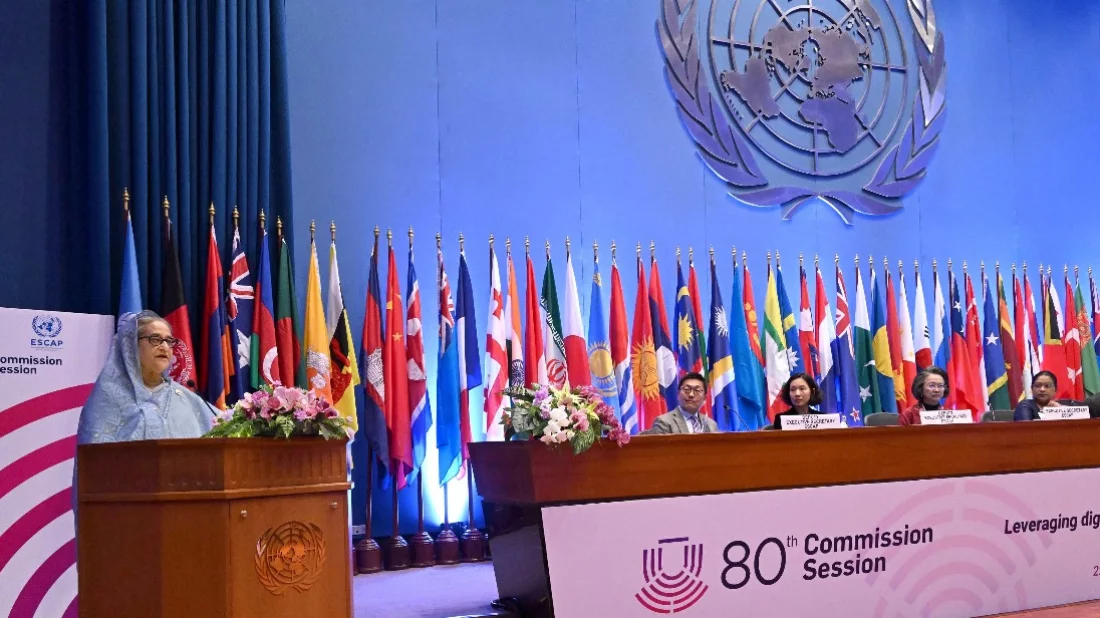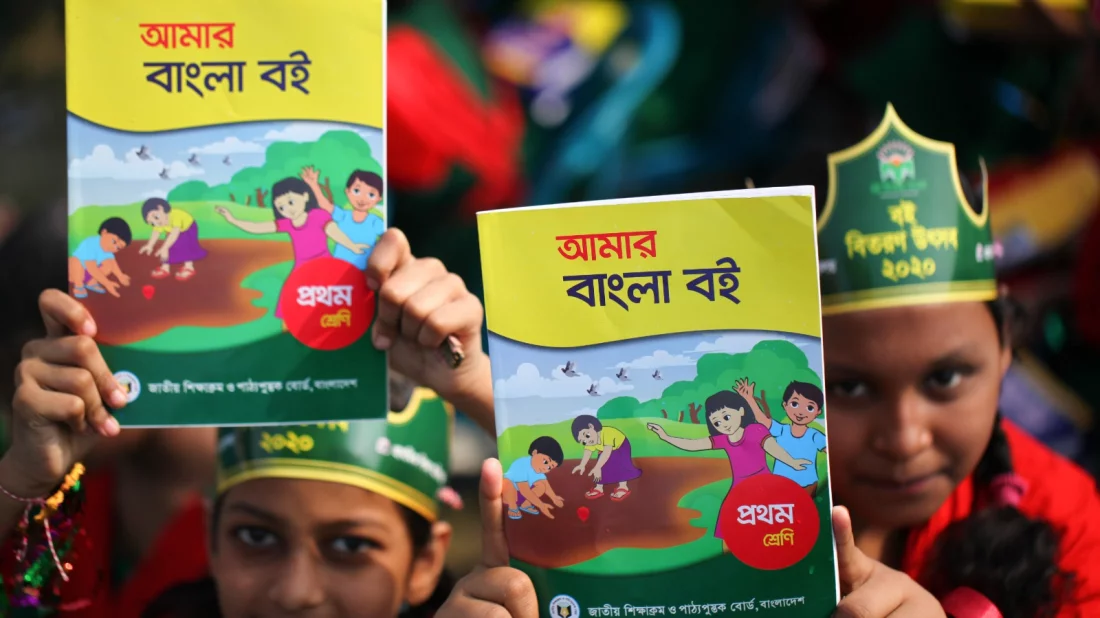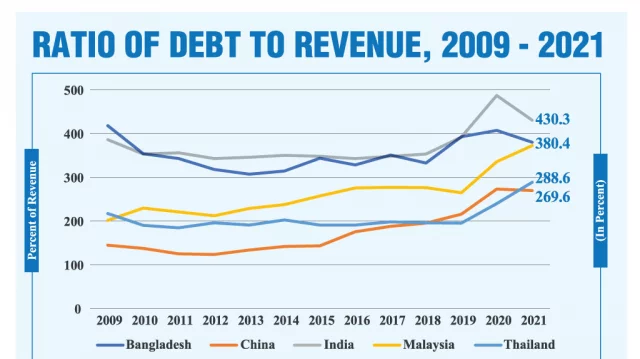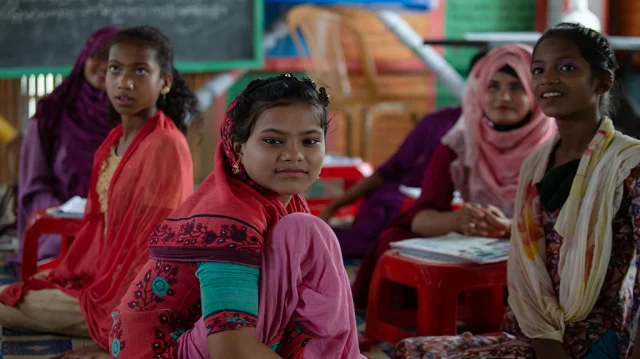
Echoes of the conflict from across the Naf River fill the air with the sound of attacks and the sight of smoke drifting overhead.
Seven years ago, children evicted from Myanmar were carried by their mothers to safety in Bangladesh. These children, now growing up in a Rohingya camp in Cox's Bazar, Bangladesh, have spent their formative years amidst stories of horror from their parents about a life lost.
They find themselves feeling as if they are still in the midst of that war. Camp life itself has become a battlefield for them.
Those working in refugee migration said that while camps may ensure survival, they do not offer a true life.
Living in constant uncertainty, the children need significant emotional support, which the camp environment struggles to provide. These children, now aged 11 to 16, arrived in Bangladesh seven years ago, between the ages of 4 and 9.
They have grown up in 10-by-10-foot shelters, their lives confined to the narrow boundaries of the camps.
As of January, according to the joint fact sheet by the Bangladesh government and the United Nations refugee agency, the current population of the Rohingya camps is 975,350, with 52% being children.
Of these children, 21% are aged 5 to 11, and 15% are aged 12 to 17. Their experiences were shared through focus group discussions in camps 1, 7, and 9.
Life feels like a fairy tale
On May 2, 2024, in Ukhiya, a group of six boys at Camp-7 shared their thoughts with this correspondent.
An 11-year-old boy, who arrived in Bangladesh at the age of four, learned that his current home was not truly his own. Their homeland lies in the distant mountains, yet returning seems impossible.
When asked if their parents discussed the past, another child, Jubair, mentioned hearing stories from his mother about their house, agricultural land, and relatives back in Myanmar.
Despite the uncertainty, some children believe those things still exist.
Living on handouts
In Camp-9, boys aged 10 to 14 expressed their views. Kabir, 14, explained that they grew up hearing about the war in their homeland.
"Camp life is also a war," he said. "Food and accommodation are provided by others. We receive food rations, sometimes reduced. We must collect water in long lines. These are our battles. We don't even know why we're here."
Another 11-year-old girl in Camp-9 added: "We live in constant fear here too. We cannot move freely. Many of my friends have been married off or sent away secretly. This is unacceptable."
Political activism and a desire to return
In Camp-1, a group of boys aged 11 to 14 became politically active. Three out of seven regularly attend marches advocating for their return to Myanmar.
Despite ongoing conflict, they wish to leave the camp. One boy said: "If we stay here, we have no future. No one will kill us, but we will live on aid forever. I'd rather fight for my place."
When asked about their parents' views on returning, 13-year-old Heerajan, from a group of girls, said: "Our life here is a daily battle. My mother says living in this captivity is a constant struggle."
Impact on children
Child rights activist Gauhar Naeem Wara believes these children face significant injustices. As they are not formally recognized as refugees, they lack access to various rights, affecting their education, health, and psychosocial well-being.
Gauhar Naeem Wara advocated for providing travel documents to protect them from accusations of illegal activities.
She said: “We should want and be able to do the best for children. Since we can't send them back right now, we also need to formulate plans so that we can eliminate the linguistic distance.”
When asked about their parents' hopes, 14-year-old Rima responded: "Our country is Burma. We live on foreign aid here. When the war stops, we will leave."
Rima, who is already facing marriage proposals, dreams of returning to her homeland.
Shamsud Douja, additional refugee relief and repatriation commissioner, said: "We try to keep them engaged in various activities, like football games organized by the commission. However, a camp is still a camp. Children hear the politics surrounding their return, which can be mentally confusing for them."





